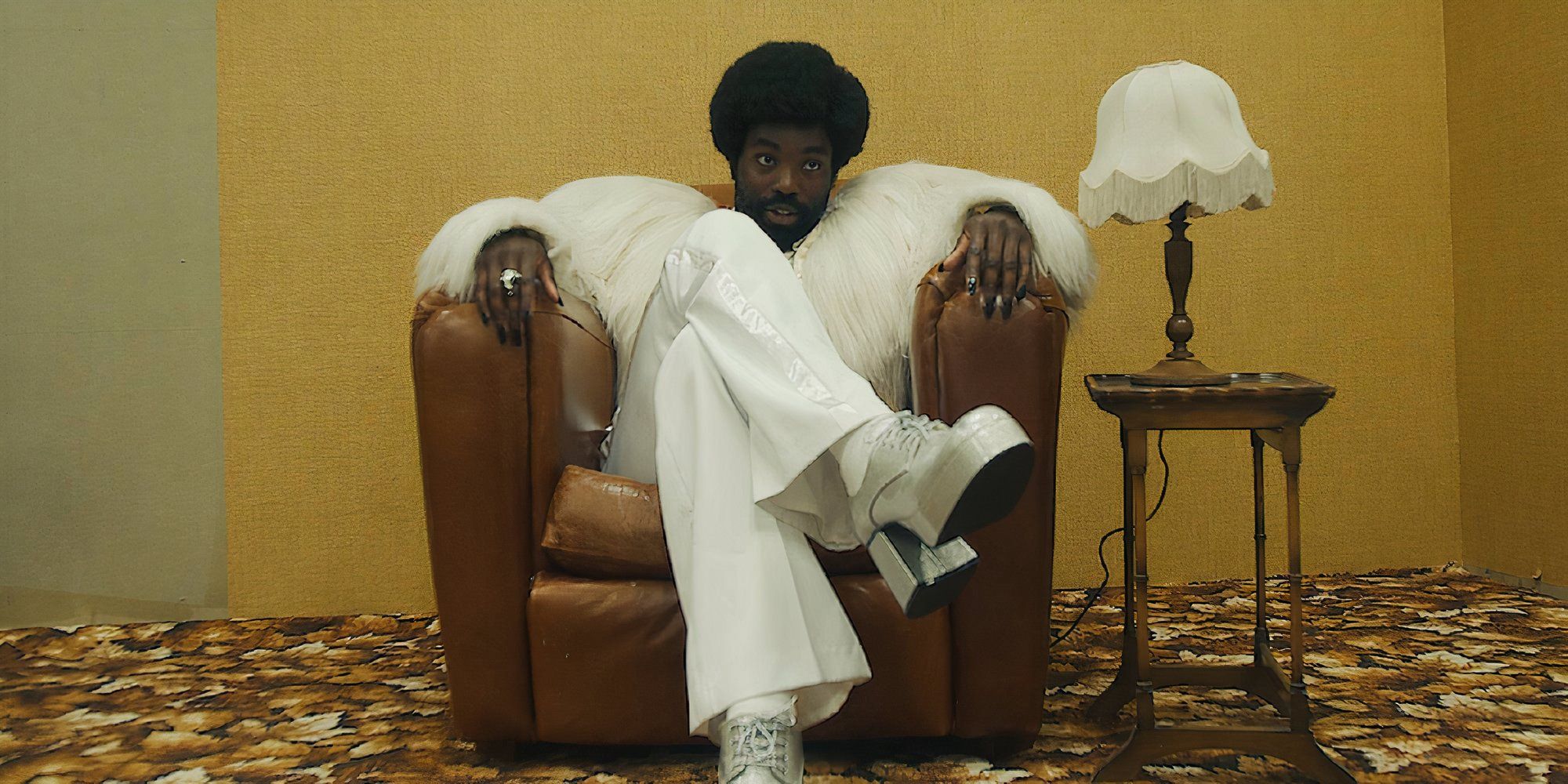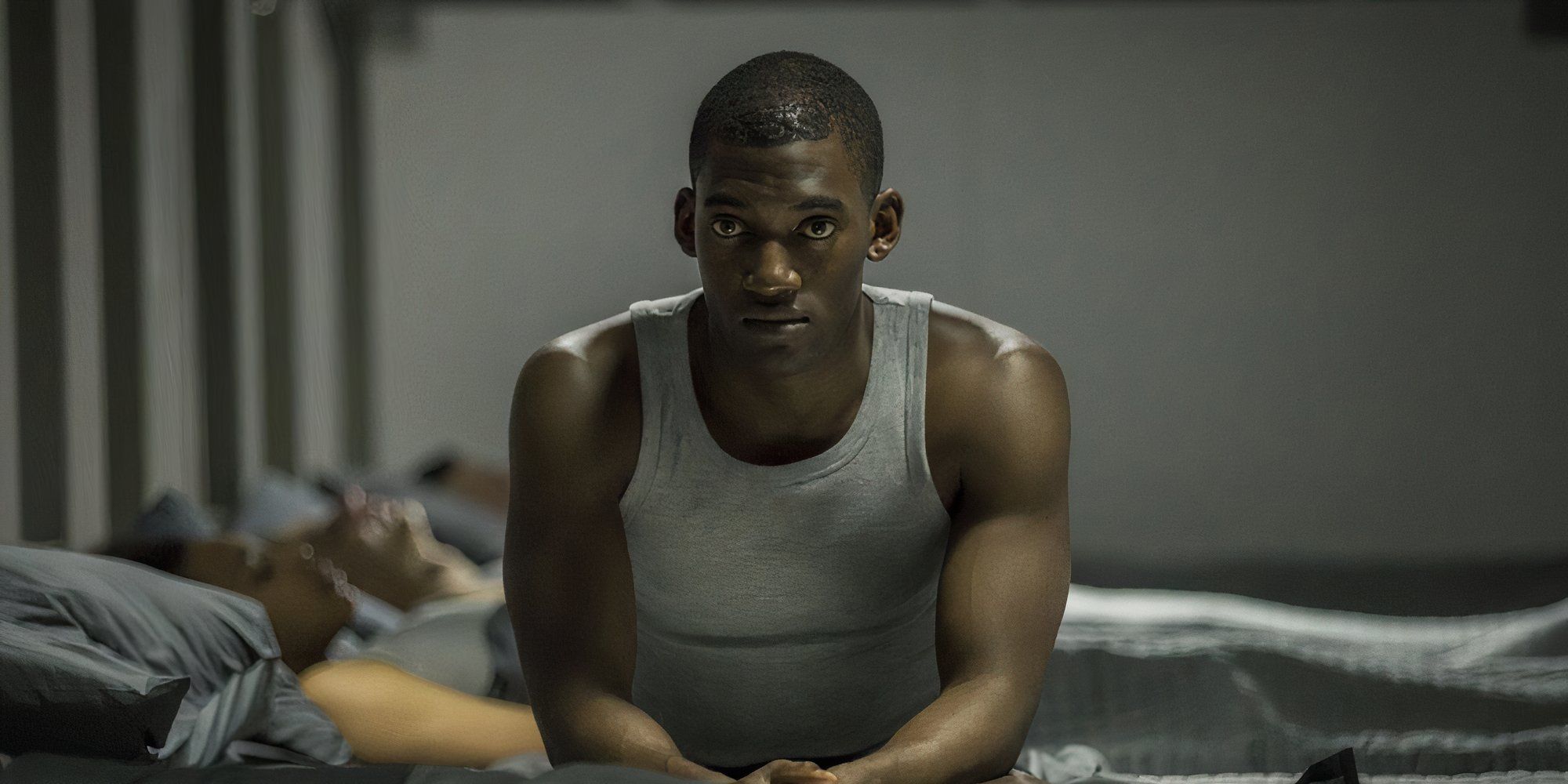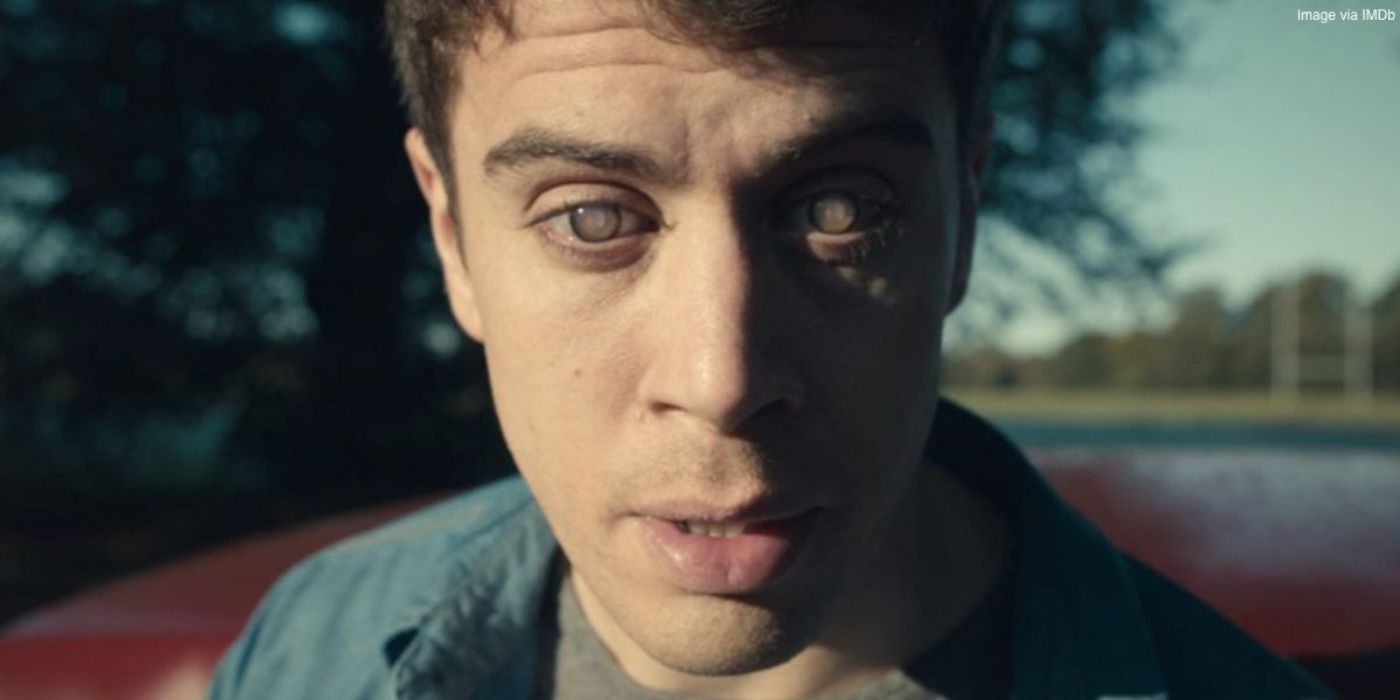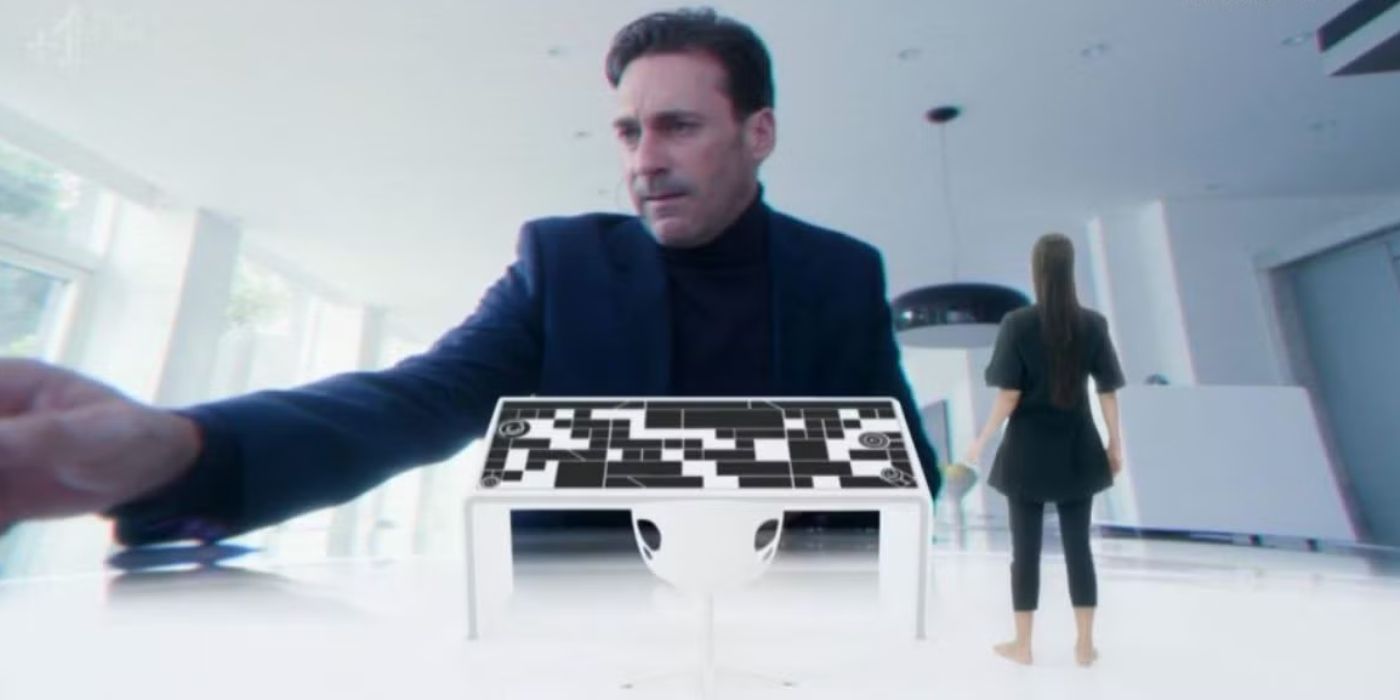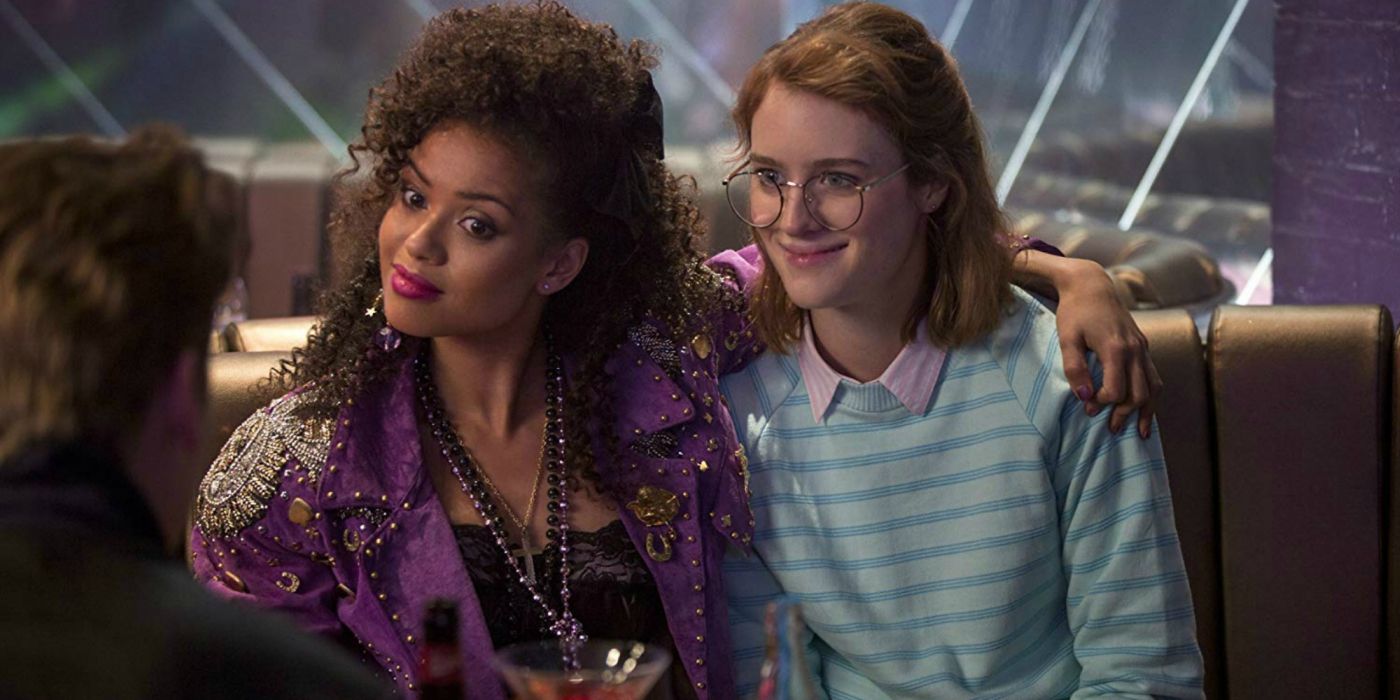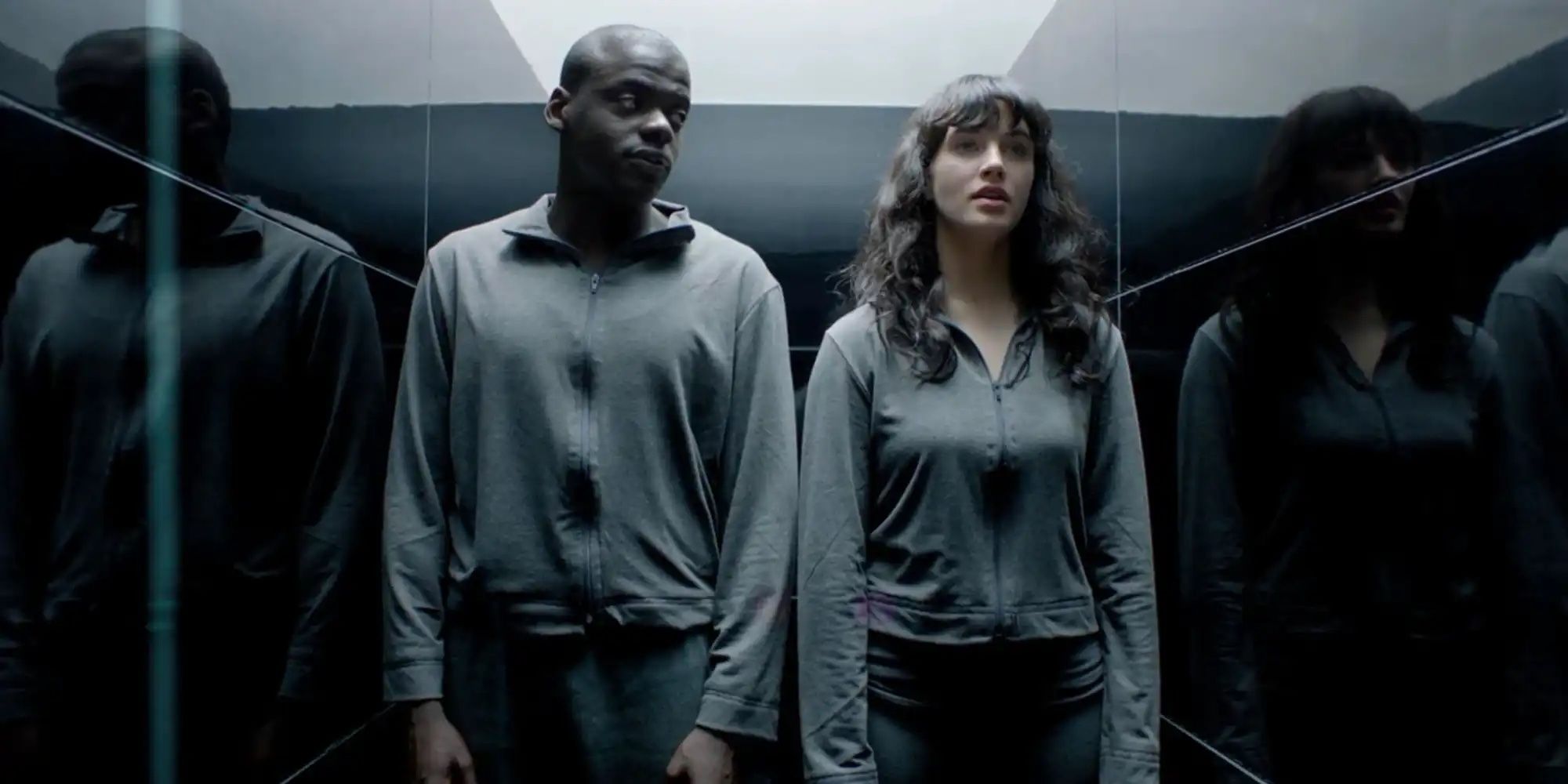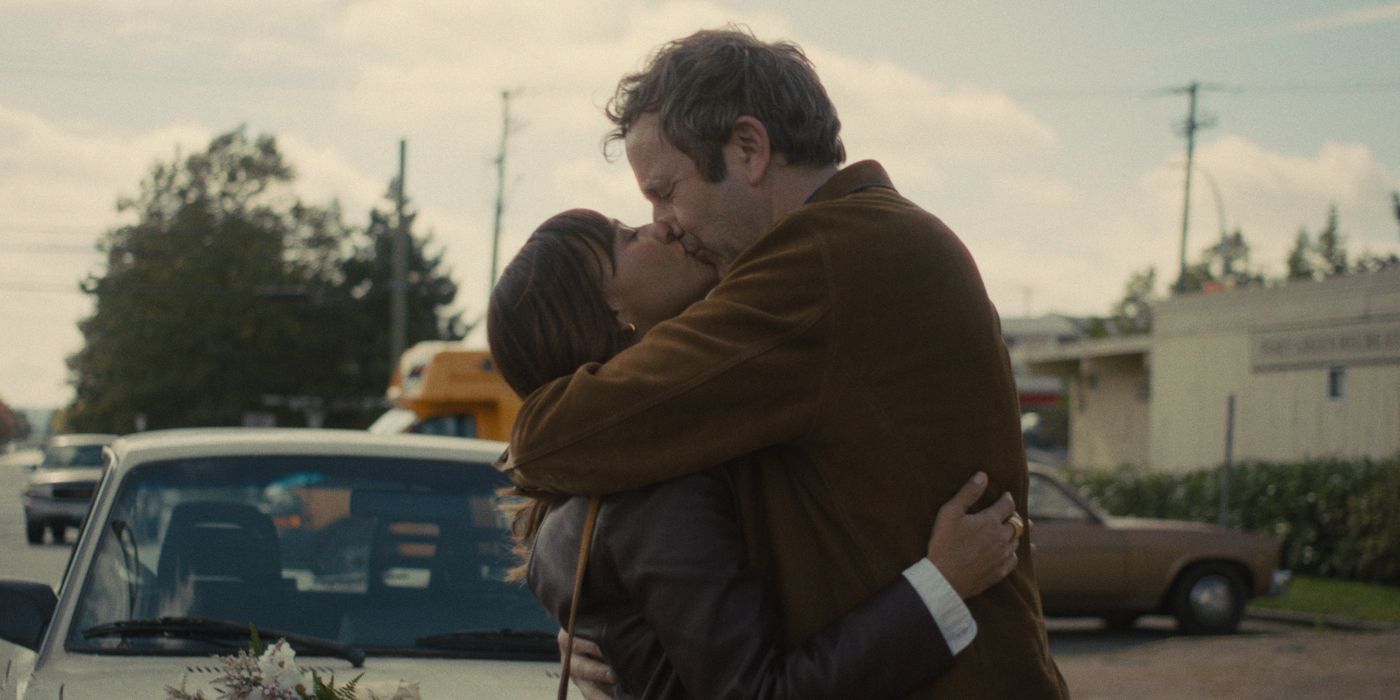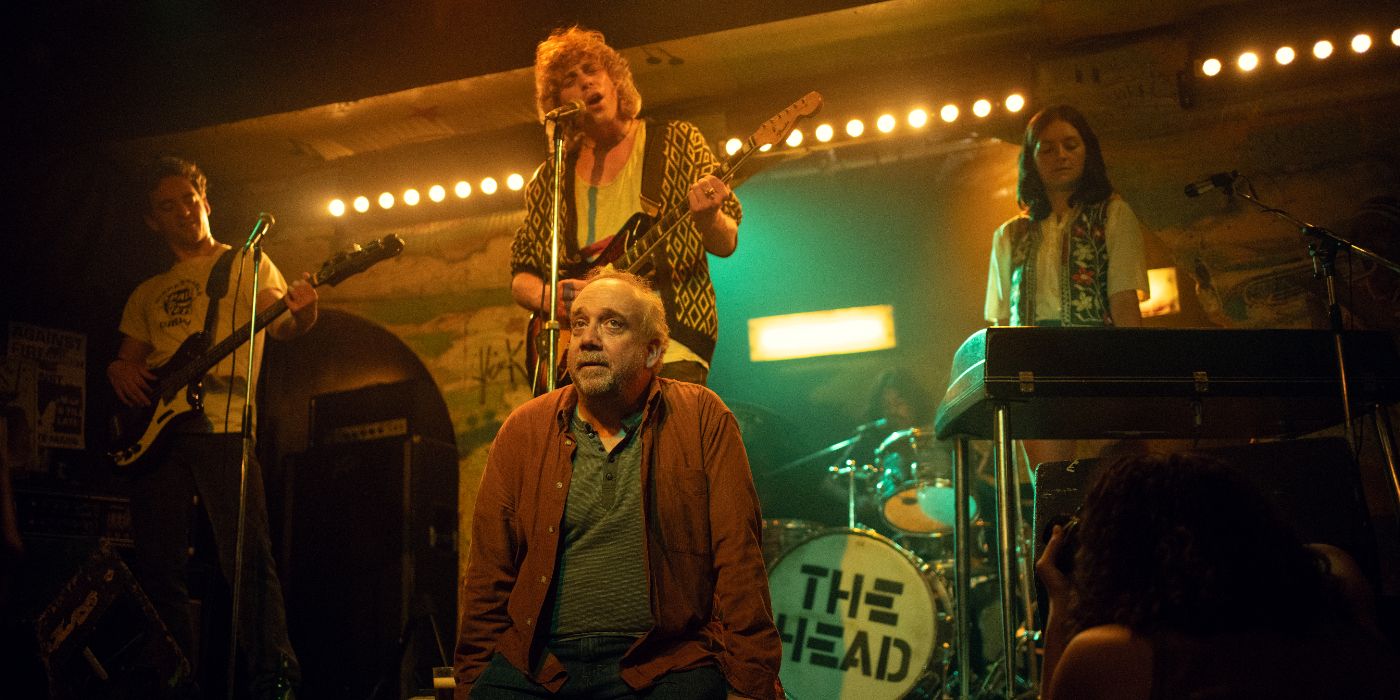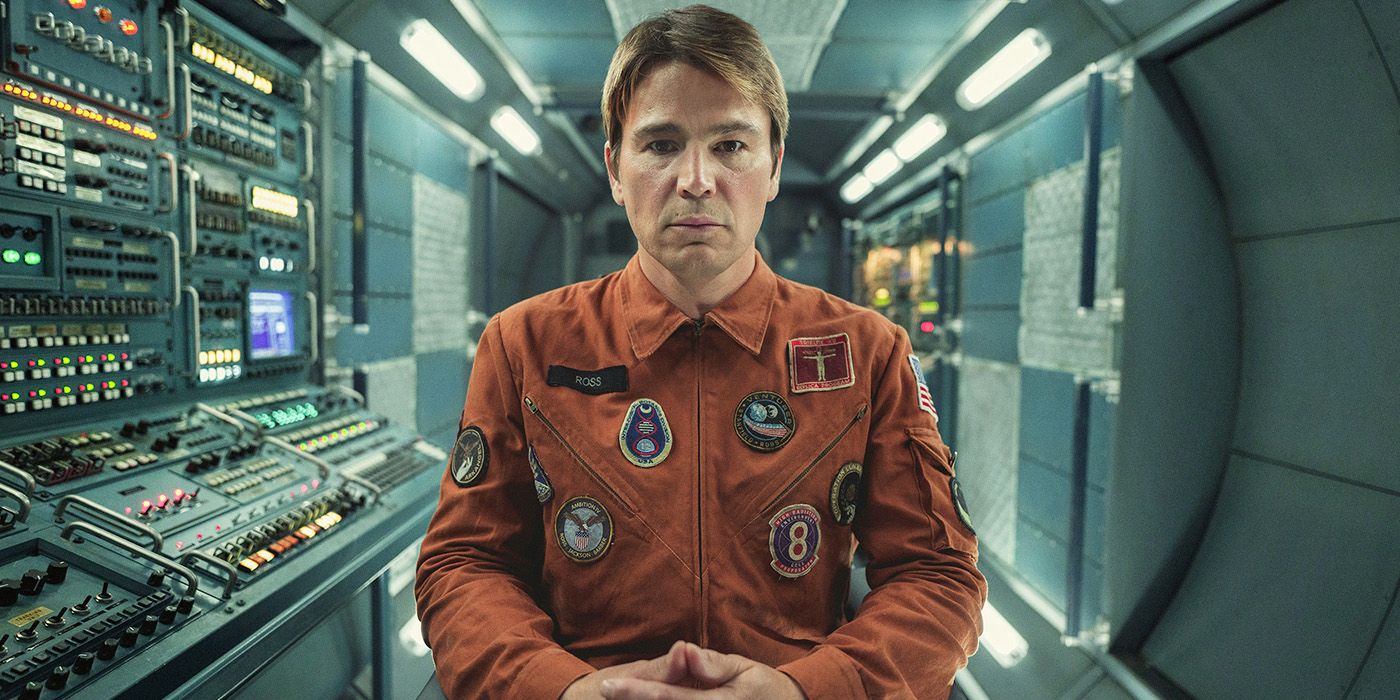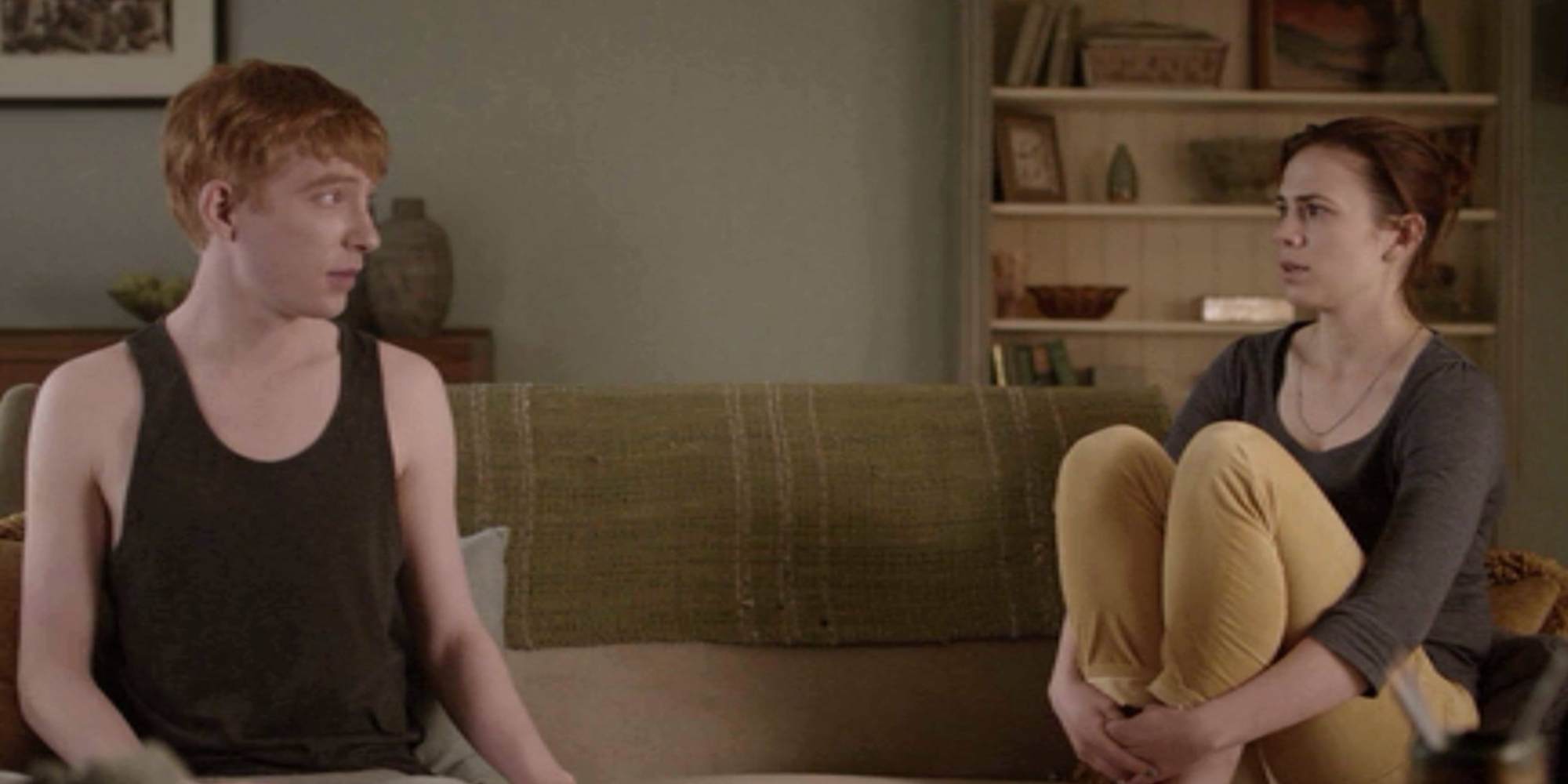When watching Black Mirror dissect humanity’s relationship to technology, it’s hard not to think of the similarities between it and The Twilight Zone. As two of the greatest anthology shows on television, they both offer brilliant critiques of societal norms through clever and sometimes terrifying visions of the near future.
With the seventh season newly released on Netflix, we take a look at the Black Mirror episodes over its entire run that best fit the spirit of The Twilight Zone. These are the Black Mirror episodes that evoke the social commentary and examination of the human condition that made The Twilight Zone the influential touchstone it’s celebrated for.
10
“Demon 79”
Season 6, Episode 5
A woman enters a pact with a demon that has possible catastrophic results in “Demon 79.” Department store clerk Nida (Anjana Vasan) trudges through a life of suppressed rage and micro-humiliations until a forced lunch in a basement grants her an audience with an ancient demon (Paapa Essiedu). Nida is ordered to kill three people as human sacrifices or face world-ending results as the price of her failure.
“Demon 79” veers away from the technology-focused episodes to throw in a dose of fantasy horror that would feel at home on a ’60s television set with The Twilight Zone creator Rod Serling providing an introduction. An ordinary person thrown into an incredible situation via a supernatural entity is a quintessential setup for an anthology show, and as a retro throwback, “Demon 79” utilizes the premise well.
9
“Men Against Fire”
Season 3, Episode 5
A soldier fights a war against an enemy he was never meant to understand in the haunting season three episode “Men Against Fire.” Soldier “Stripe” (Malachi Kirby) is on the front lines, aided by a neural implant that allows him to hunt “roaches,” a mutant threat his detail is ordered to eliminate. When Stripe’s implant malfunctions and shows him the truth behind the deadly enemy, he must choose to return to an ignorant bliss or a guilt-ridden reality.
The Twilight Zone often showed the effects of war and the damage left from its brutality, so “Men Against Fire” echoes the tone perfectly. In a series where plot twists are expected, the twist of the episode is easy enough to spot, but that doesn’t soften the impact of the message. As a bleak commentary on blind order following, “Men Against Fire” leaves a sick feeling in your stomach that Black Mirror specializes in.
8
“The Entire History of You”
Season 1, Episode 3
The first season of Black Mirror ended in a gutpunch in the form of “The Entire History of You.” In a future where implants allow users to replay recorded memories, Liam (Toby Kebbell) becomes first suspicious, then obsessed, with his wife Ffion’s (Jodie Whittaker) interactions with another man at a dinner party. As Liam scours his memories, replaying each instance with deeper scrutiny, he gets closer to information he’s not emotionally prepared to have.
As an escalation of where technology currently is and where it could potentially go, “The Entire History of You” explores the ramifications of having recordings of one’s life so easily available. It’s a science fiction premise that spirals into a painful story of distrust, insecurity, and obsession with an ending that leaves its protagonist worse off than where they started. By holding onto memories, Liam could not move forward, compelled to repeatedly relive a painful past.
7
“White Christmas”
Christmas Special
Don’t let Christmas being in the title mislead, as this is another dark story to fit within the catalogue of similar Black Mirror offerings. “White Christmas” opens with two men, Matt (Jon Hamm) and Joe (Rafe Spall), finally opening up to one another after an extended time together in a cabin. As each of the men’s stories begin to uncover darker pasts, the truth behind their living situation is revealed to have a more meaningful purpose.
In creating an anthology of stories within an anthology episode, “White Christmas” becomes one of the more dense Black Mirror entries. There’s a great deal to unwrap in “White Christmas,” but the largest focus is on the concept of “blocking” people on social media, and how that would manifest on a larger scale as technology progressed. As the episode progresses, there is a consistent peeling back of layers concerning both men, creating a consistently intriguing story.
6
“San Junipero”
Season 3, Episode 4
A beach town holds the possibilities for eternal happiness in the fan-favorite episode “San Junipero.” When Yorkie (Mackenzie Davis) meets Kelly (Gugu Mbatha-Raw) in a San Junipero nightclub, they discover an almost immediate chemistry. As the two become closer and share more details about the other lives they lead, the truth about what San Junipero is leads both women to discuss whether it’s a place worth picking as their final home.
Although The Twilight Zone didn’t address the struggles experienced in same-sex relationships, it’s highly likely stories like “San Junipero” would have been told if the show were made in a later era. The visually stunning episode was one of the standouts in season three, crafting a love story heavy on science fiction while remaining light on the nihilistic tone the series was becoming known for.
5
“Fifteen Million Merits”
Season 1, Episode 2
Members of society live in a restricted world of advertisements and grey surroundings in the iconic episode “Fifteen Million Merits.” Bing (Daniel Kaluuya) has resigned himself to a dull existence riding a stationary bike for merits when he’s inspired by the singing of Abi (Jessica Brown Findlay). When he uses his own merits to buy her an audition for a talent show, his well-meaning gesture leads to unexpectedly dark results.
“Fifteen Million Merits” features an outstanding performance from Kaluuya that, for many, contributes to the episode as an early high point of the series. The themes of exploitation, the pursuit of celebrity as salvation, and the futile effort to feed hollow consumerism established the tone of Black Mirror and brought in many fans who wanted to see more. Some of the more adult themes couldn’t have made it to air on The Twilight Zone, but the rest would have been a perfect fit.
4
“Common People”
Season 7, Episode 1
When an elementary school teacher is struck with a terminal illness, she’s offered a costly option to manage it in the season seven opener, “Common People.” Amanda (Rashida Jones) is suffering from severe headaches that turn out to be fatal, and her husband, Mike (Chris O’Dowd), desperate to keep his wife alive, agrees to an experimental service that will extend her life. The treatment requires a subscription service to keep her alive, and when the monthly price rises, more sacrifices will need to be made on an already tight budget.
“Common People” is what The Twilight Zone did in its best episodes: examining the relatable fears and concerns of modern life, specifically, in this case, how to prepare financially and emotionally for inevitable health issues. By combining those fears with the growing trend of businesses opting for subscription models to sell their services, Black Mirror fuses what is familiar to create a horrifying scenario that sadly doesn’t seem so unbelievable.
3
“Eulogy”
Season 7, Episode 5
An isolated man is asked to contribute memories to a woman from his past in the introspective episode “Eulogy.” When Phillip (Paul Giamatti) learns that his ex has died, he’s contacted by a service that requests his recollections of her for an interactive memorial. As Phillip is guided through old memories by an AI guide (Patsy Ferran), a closer inspection of his decades-long heartache reveals perspectives not previously considered.
“Eulogy” feels spiritually close to the more character-driven episodes of The Twilight Zone, where a high-concept is used to tell an intimate story. Although modern special effects allow for impressive visuals of Phillip “entering” old photos, “Eulogy” is a story that could have been told in the 60s. For all the science fiction fantasies and futuristic horrors both shows are known for, they also excel at concepts like self-examination and the cathartic release that comes with it.
2
“Beyond the Sea”
Season 6, Episode 3
“Beyond the Sea” follows two astronauts, David (Josh Hartnett) and Cliff (Aaron Paul), who live in an alternative version of the late 60s. While their human bodies are committed to a multi-year mission in a space station, they have robotic bodies in which their consciousness can exist with their families on Earth. When a tragedy strikes David’s family, a chain of events sends both men on a dark collision course.
If people were beginning to think Black Mirror had lost its ability to deliver crushing finales, they were proven wrong with the heartbreaker “Beyond the Sea.” Hartnett and Paul do excellent work with one another, creating understandable motivations for what they each do (up until a point). The Twilight Zone loved stories about astronauts, and the tension-filled tale of madness induced by grief and isolation evokes the classic episodes of the black-and-white series.
1
“Be Right Back”
Season 2, Episode 1
When a woman’s boyfriend dies in a car accident, she receives a second chance to speak to him in the season two episode “Be Right Back.” Martha (Hayley Atwell) mourns the unexpected death of her boyfriend Ash (Domhnall Gleeson), but when she receives an opportunity to text with him via a problem that captures his personality from online posts, she has an opportunity to feel closure. However, as the service advances to more intricate possibilities, Martha is unable to move on from her memories.
Even subconsciously, The Twilight Zone has to bear some level of influence on anthology shows such as Black Mirror, where even though science fiction may be the draw, the real interest is in telling a relatable and human story. Since the episode first aired in 2013, the rise of Artificial Intelligence has made aspects of “Be Right Back” a possibility, making the story hit harder now than it did more than ten years ago. It’s a story that perfectly summarizes the comfort technology can provide, and the pain it prolongs when it prevents us from letting go.

